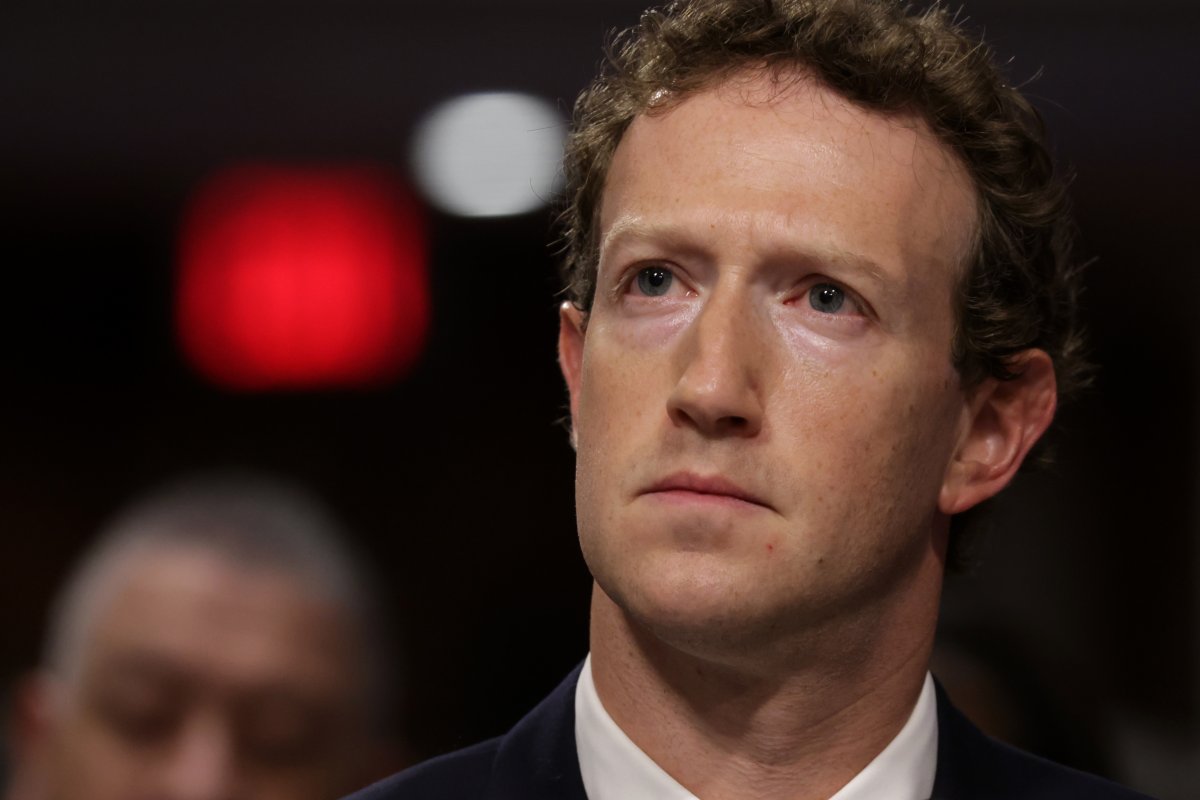Mark Zuckerberg In A Trump Presidency: A Shifting Landscape For Facebook

Table of Contents
Increased Scrutiny and Regulatory Pressure
The Trump era brought a significant increase in scrutiny and regulatory pressure on Facebook, largely fueled by events surrounding the 2016 US presidential election.
Fake News and Foreign Interference
The spread of fake news and the revelation of foreign interference in the 2016 election thrust Facebook into the political spotlight. Mark Zuckerberg faced intense criticism for Facebook's perceived role in facilitating these events. This led to:
- Congressional hearings and investigations: Zuckerberg himself testified before Congress, facing tough questioning about Facebook's data privacy practices and its efforts to combat misinformation.
- Public pressure for increased regulation: The public outcry resulted in calls for stricter government regulation of social media platforms, aiming to hold companies accountable for the content shared on their sites.
- Implementation of fact-checking initiatives: In response to the criticism, Facebook partnered with third-party fact-checkers to identify and flag false or misleading information. However, the effectiveness and impartiality of these initiatives remained a subject of ongoing debate.
- Challenges in content moderation and algorithm transparency: The sheer volume of content on Facebook made effective content moderation extremely difficult. Questions regarding algorithm transparency and potential biases further fueled the controversy.
Section 230 Debates
The Trump administration's repeated attacks on Section 230 of the Communications Decency Act, the law shielding social media platforms from liability for user-generated content, created significant uncertainty for Facebook. This resulted in:
- Threats to repeal or amend Section 230: The President frequently threatened to repeal or significantly alter Section 230, arguing that it allowed social media companies to censor conservative voices.
- Implications for Facebook's business model and content moderation policies: The potential loss of Section 230 protection posed a significant threat to Facebook's business model and its ability to moderate content effectively. Uncertainty surrounding the law's future led to internal debate and evolving content moderation strategies.
- Zuckerberg's lobbying efforts to protect Section 230: Zuckerberg and Facebook engaged in significant lobbying efforts to protect Section 230, arguing that its repeal would have a chilling effect on free speech and innovation.
Political Polarization and the Spread of Misinformation
The Trump presidency exacerbated existing political polarization, and Facebook's algorithms were often criticized for contributing to the problem.
Echo Chambers and Algorithmic Bias
Concerns arose about the creation of echo chambers within Facebook's ecosystem, where users were primarily exposed to information reinforcing their existing beliefs. This was often attributed to:
- Concerns about algorithmic bias and its impact on political discourse: Critics argued that Facebook's algorithms might inadvertently amplify biased or misleading information, contributing to political division.
- Debates surrounding content moderation and censorship: The line between content moderation and censorship became increasingly blurred, leading to intense debates about Facebook's responsibility in shaping the online discourse.
- Efforts to improve algorithm transparency and reduce the spread of misinformation: Facebook made efforts to improve algorithm transparency and develop new tools to detect and remove harmful content, but the effectiveness of these measures remained a point of contention.
Responding to Political Pressure
Facebook and Zuckerberg faced immense pressure to address the spread of misinformation and political manipulation. Their response involved:
- Increased investment in fact-checking initiatives: Facebook significantly increased its investment in fact-checking and content moderation efforts, though these remained controversial.
- Development of new technologies to detect and remove harmful content: The company invested in artificial intelligence and machine learning to identify and remove harmful content more efficiently.
- Engagement with political figures and organizations: Facebook attempted to engage with political figures and organizations to address concerns and build trust, albeit with mixed results.
The Impact on Facebook's Business and Reputation
The controversies surrounding Facebook during the Trump presidency significantly impacted the company's business and reputation.
Investor Confidence and Stock Prices
The political and regulatory uncertainties surrounding Facebook led to:
- Fluctuations in stock prices due to political and regulatory uncertainties: Facebook's stock price experienced significant fluctuations due to the ongoing controversies and regulatory risks.
- Investor pressure for improved content moderation practices: Investors pressured Facebook to improve its content moderation practices to mitigate regulatory and reputational risks.
- Long-term impact on Facebook's brand reputation: The controversies damaged Facebook's brand reputation, leading to increased public skepticism and calls for greater accountability.
Global Regulatory Challenges
The issues faced by Facebook in the US were not isolated; they extended globally, resulting in:
- International investigations and antitrust concerns: Facebook faced investigations and antitrust concerns in various countries, raising questions about its global market dominance and its responsibility to different national contexts.
- Varying regulations across different jurisdictions: Navigating the diverse regulatory landscape across different countries posed significant challenges for Facebook's content moderation policies.
- The need for a consistent approach to content moderation on a global scale: The inconsistencies in regulations highlighted the need for a more unified and consistent approach to content moderation on a global scale.
Conclusion
The Trump presidency significantly altered the landscape for Facebook and Mark Zuckerberg. The increased scrutiny, regulatory pressures, and challenges related to misinformation fundamentally reshaped the company's strategies and operations. Understanding the complexities of the Mark Zuckerberg Trump Presidency Facebook relationship is crucial for comprehending the evolving dynamics of social media and its impact on global politics. Further research into the long-term effects of this period is needed to fully assess its implications. Continue exploring the evolving relationship between Mark Zuckerberg and the presidency to stay informed about the future of social media regulation and its effects on our society.

Featured Posts
-
 Selena Gomezs Unintentional Reveal A Look Into Her Life With Benny Blanco
May 11, 2025
Selena Gomezs Unintentional Reveal A Look Into Her Life With Benny Blanco
May 11, 2025 -
 How To Watch The Grand Slam Track Kingston Live
May 11, 2025
How To Watch The Grand Slam Track Kingston Live
May 11, 2025 -
 The Need For Depth Accurate And Nuanced Representation Of Asian And Asian American Communities In Media
May 11, 2025
The Need For Depth Accurate And Nuanced Representation Of Asian And Asian American Communities In Media
May 11, 2025 -
 Fan Made Henry Cavill Cyclops Trailer Goes Viral Marvel Fans React
May 11, 2025
Fan Made Henry Cavill Cyclops Trailer Goes Viral Marvel Fans React
May 11, 2025 -
 Tam Krwz Ky Nyy Meshwqh Emr Ka Frq Kya Msylh He
May 11, 2025
Tam Krwz Ky Nyy Meshwqh Emr Ka Frq Kya Msylh He
May 11, 2025
